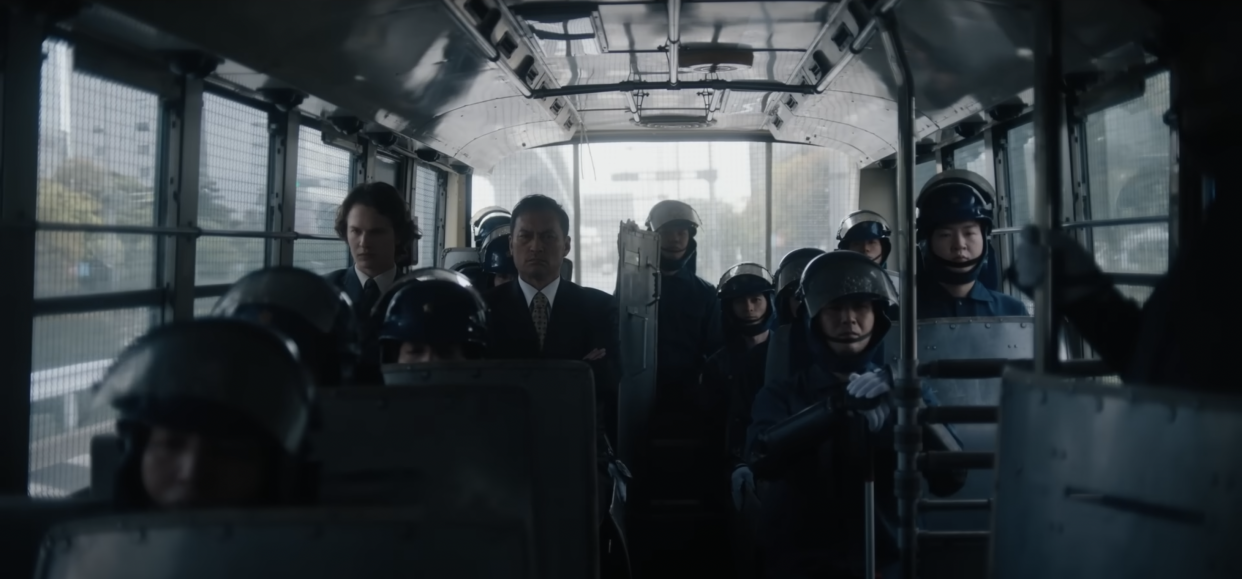‘Tokyo Vice’ Ends at Max After Two Seasons

Max has done it again. The Warner Bros. Discovery streamer has canceled another one of their masterful, underappreciated shows, this time the enthralling, cross-cultural crime period piece “Tokyo Vice.” The news was announced at the PGA’s Produced By conference by the show’s creator and executive producer J.T. Rogers and executive producer and director Alan Poul during a panel with Max original programming chief, Sarah Aubrey.
Despite the series’ short run, the panelists indicated that this was a mutual decision.
More from IndieWire
“We’re grateful not only to Max, but to our partners Fifth Season, who sold the show around the world, and made it a global success story,” Rogers and Poul wrote in join statement shared by Variety. “They were in the trenches with us always, guaranteeing that we could make the show we wanted to make. The response from both the press and from fans, in particular to Season 2, has been overwhelming. It’s been thrilling to find out how deeply viewers have engaged with our characters, and to hear how they are clamoring for more.”
In response to IndieWire’s request for comment, a source with knowledge of the situation said: “‘Tokyo Vice’ was pitched as a two-season show (the season finale is titled ‘Endgame’) and we only ever had a two-season option for Ansel.”
Based on Jake Adelstein’s 2009 memoir of the same name, “Tokyo Vice” follows a young, fresh-faced, American reporter (Ansel Elgort) as he takes on the crime beat in a city run by the Yakuza. Organized crime was rampant throughout Tokyo during the late ‘90s/early 2000s and in a culture where honor is everything, Adelstein does everything in his power to get the story, but struggles to understand the codes of silence the city lives by. Co-starring the always incredible Ken Watanabe, as well as a slew of fantastic Japanese talent such as Yōsuke Kubozuka and Shun Sugata, the show featured some of the best performances of the year, as well as an incredibly engrossing narrative, and production design that was second-to-none. Utilizing the bright, yet cold shine of Tokyo’s streets, the show’s visuals seized on the value of shooting on location with expertly crafted imagery from the likes of Michael Mann, as well as Japanese filmmakers like Hikari.
After the cancellations of “Rap Sh!t,” “Julia,” “Our Flag Means Death,” “Gossip Girl,” and “The Flight Attendant,” the news about “Tokyo Vice” does follow an unfortunate trend of Max shows not going forward after sophomore outings. The streamer has gained notoriety for these and other cancellations which arguably send the chilling message that executives behind the once-illustrious HBO brand may be moving away from the narrative television space.
“Tokyo Vice” should’ve been a home run, and maybe better suited to the HBO banner than to Max. With echoes to legacy programs for the network like “The Wire,” the show’s specificity and grittiness made sense for the brand and may have got lost on an app inundated with other viewing options. Looking at the success of another show that involved exploring Japanese culture, FX’s “Shōgun,” it’s easy to see how with the right marketing and on the right platform, “Tokyo Vice” could’ve really taken off. Perhaps even another season would’ve garnered enough attention and favor to draw people in, especially after such a stellar season 2, but alas, that won’t be happening at the moment. However, Rogers and Poul’s statement does leave the door open for the show to continue.
“We know there is more story to tell. Of course we’ll see what the future holds, but we are indeed grateful to have been able to share this story on Max until now,” they wrote.
Best of IndieWire
A History of Unsimulated Sex Scenes in 17 Cannes Films, from 'Mektoub' to 'Antichrist' to 'Caligula'
The Best LGBTQ Movies and TV Shows Streaming on Netflix Right Now
Guillermo del Toro's Favorite Movies: 54 Films the Director Wants You to See
Sign up for Indiewire's Newsletter. For the latest news, follow us on Facebook, Twitter, and Instagram.

 Yahoo News
Yahoo News 
